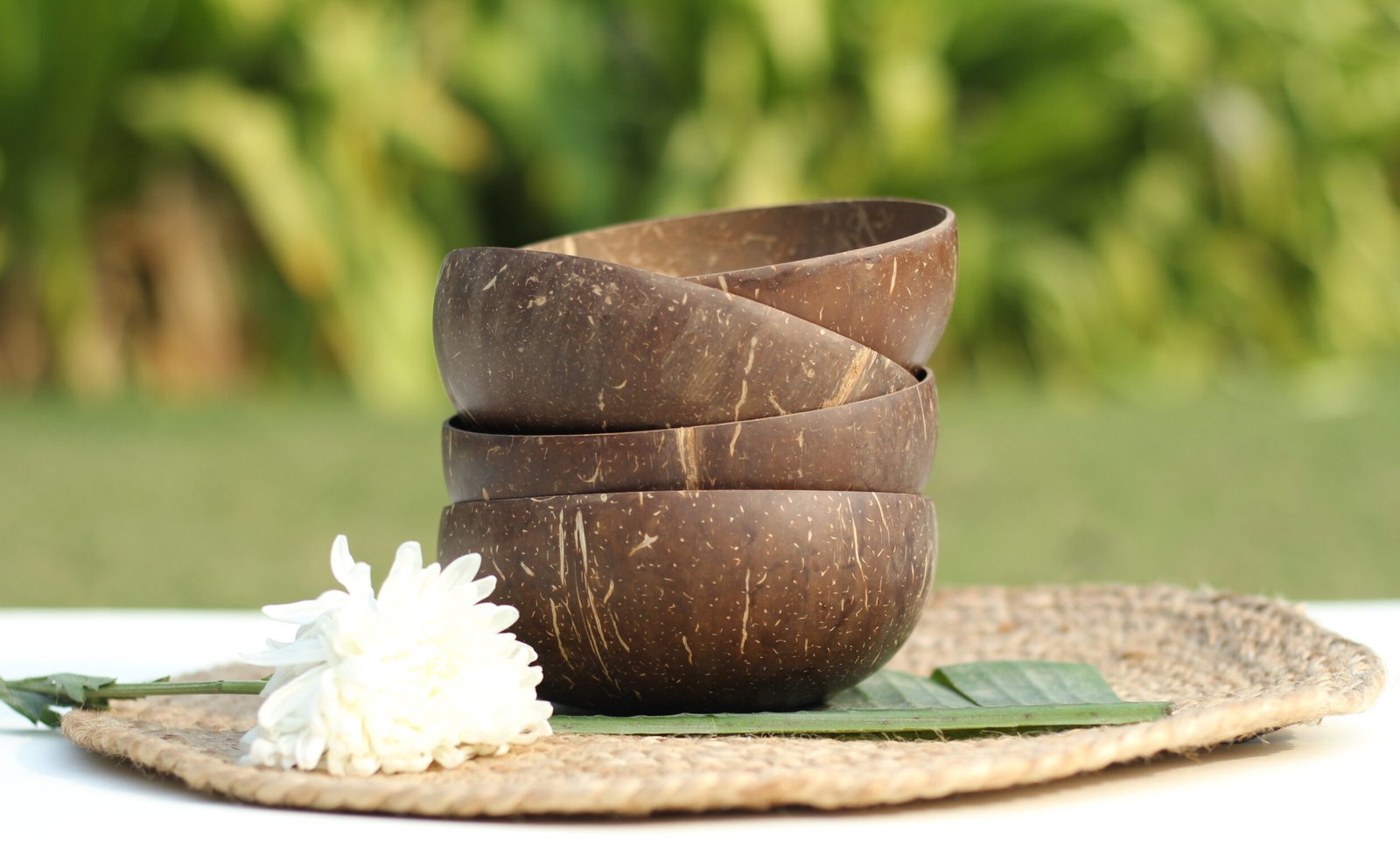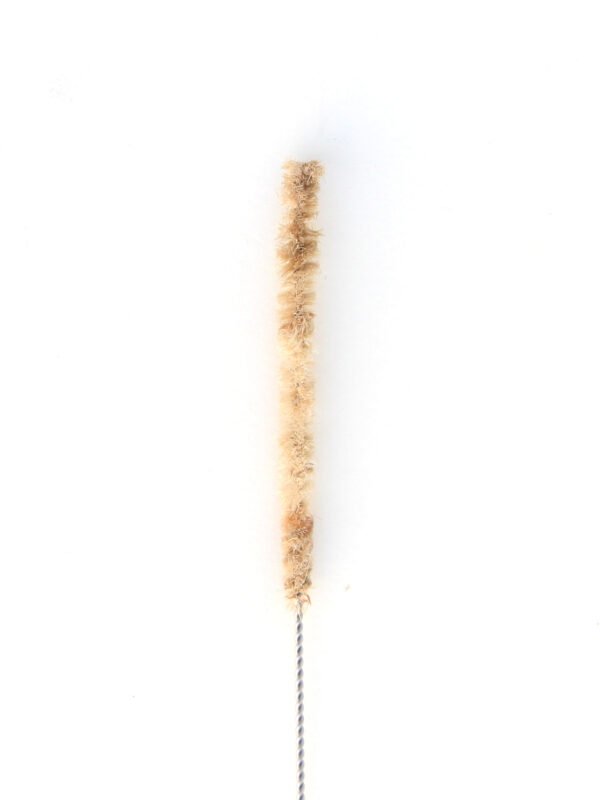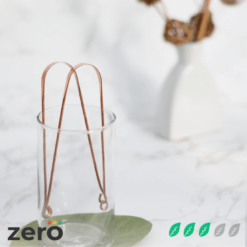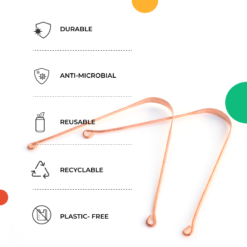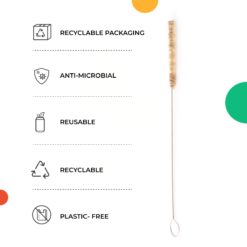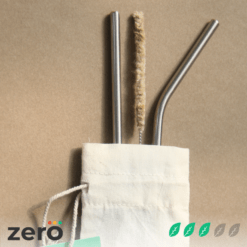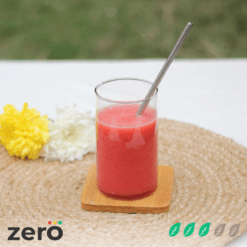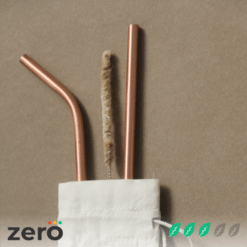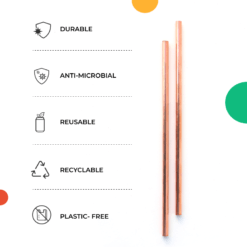Environment, Lifestyle, Sustainability
Coconut Coir Straw Cleaner: For Germ-Free Sipping
A few years ago, straws had quickly become one of the most controversial topics people spoke about. Photos of aquatic animals like turtles and birds getting injured with straws and plastic cans from the landfills, oceans, etc. flooded our social media.
While we need to be extremely responsible about the kinds of plastic alternatives we used for straws, we also need to consider the next most important thing!
That’s right, we’re talking about STRAW CLEANERS!
What’s so great about Coconut Coir Straw Cleaners?
Here, we have compared a Coconut Coir Straw Cleaner with a plastic alternative using our 5-factor rating system. You can read more about our rating system here.
| Factors | Coconut coir | Plastic |
| 1. Raw Material | Natural + Synthetic (Metal) | Synthetic |
| 2. Manufacturing Emissions | Medium* | High |
| 3. Product Lifespan | 6 months | 1+ years |
| 4. Biodegradability | 1 year | >450 years |
| 5. Packaging | Minimal | Not Minimal |
| BZ Eco-Rating | 3.5 | 1.5 |
BZ ECO-FACTORS RATING:
Our environmental rating is formulated by considering the following 5 factors:
Raw Material:
Coconut coir is a natural, organic, and decomposable material, while plastic is an artificial, man-made product. Hence, coir straw cleaner is given a rating of 0.5 (since the body is made of metal- steel) while plastic is rated 0.
Manufacturing Emissions:
Manufacturing coconut coir products results in lesser carbon emissions as compared to the process of making plastic from oils. Hence, coir straw cleaner is rated as 0.5 (since the body is made of metal- steel) while plastic is rated as 0.
Lifespan:
Coconut Coir straw cleaner has a lifespan of 6 months, and plastic straw cleaners can be used for a longer span i.e. 1+ years, hence coir is rated as 0.5, and plastic as 1.
Biodegradability:
Coconut Coir straw cleaner, being an all-natural product, has an ease and a faster rate of biodegradability while plastic takes almost 150x more years. Hence, coir is rated 1, plastic is rated 0. premiersolarcleaning.com
Packaging:
BZ follows minimal packaging practices, our straw cleaners are shipped in reusable cotton pouches made from recycled industrial waste from Katran Market, hence rated as 1. While the plastic straw cleaner is rated as 0.5 since the packaging may or may not be eco-friendly and minimal depending on the manufacturers.
As you can observe, coconut coir is the winner here!
Let’s talk coconuts! 😛
Coconuts are extremely versatile, they have many distinctive qualities such as,
- Sturdy
- Long-lasting
- Authentic vibes, etc.
ENVIRONMENTAL IMPACT OF THE PRODUCT:
1) Number of units wasted worldwide:
1 nylon product (plastic straw cleaners) creates ~ 3,78,000 years of waste over a lifetime.
8.3 billion plastic straws pollute the world’s beaches. It is estimated that by 2050 the number of plastics in the sea will be higher than the number of fish.
2) Packaging waste created:
Plastic is one of the most widely used materials when it comes to packaging.
It contributes to around 40% of packaging waste. A plastic bag has an average working lifespan of 15 minutes, after which it is discarded. Approximately, about 500 billion plastic bags are used worldwide.
Quick Usage Techniques:
Cleaning:
Clean the coconut coir straw cleaner with some lukewarm water and soap. The anti-fungal properties of coconut help in maintaining oral hygiene.
Storage:
Coconut fiber adds air pockets into your medium which means it’s not very absorbent which prevents mold if stored correctly. After cleaning the straw cleaner, let it dry off, and then store it in a dry place to avoid any mold formation. Sterilize it in warm water for a longer and more hygienic experience.
Disposal:
Since coconut straws are completely biodegradable, you can separate the coconut coir and steel handle;
- Compost the coconut coir in a home composting bin/ drop them off at a nearby local commercial composter.
- Dispose of the steel handle in a nearby curbside recycling bin.
